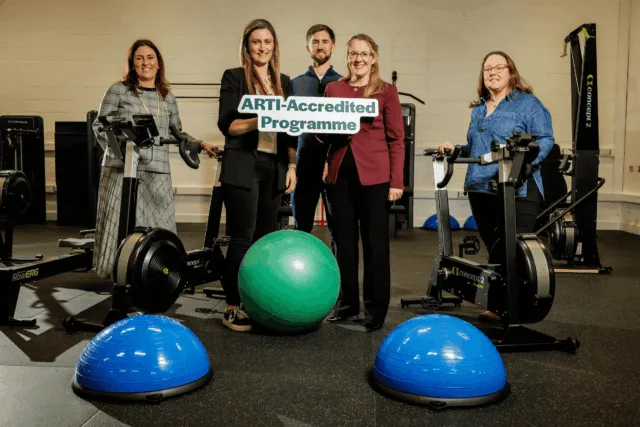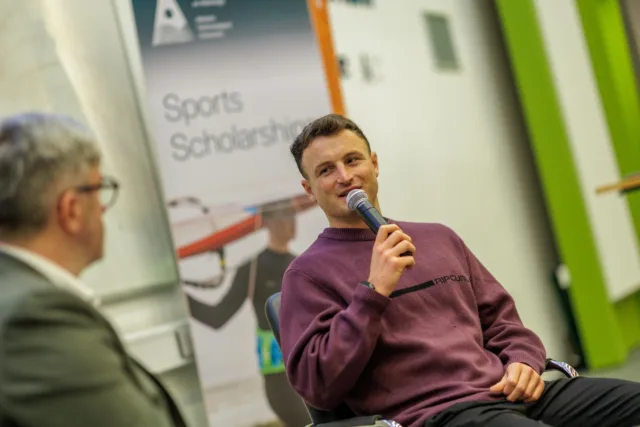ATU Data2Sustain healthcare symposium highlights power of data and technology to transform healthcare
Atlantic Technological University (ATU) recently hosted the Data2Sustain Healthcare Symposium, bringing together healthcare leaders, technologists, researchers, and policymakers under the theme “Rethinking Data Utilisation for Driving Innovation in Healthcare.”
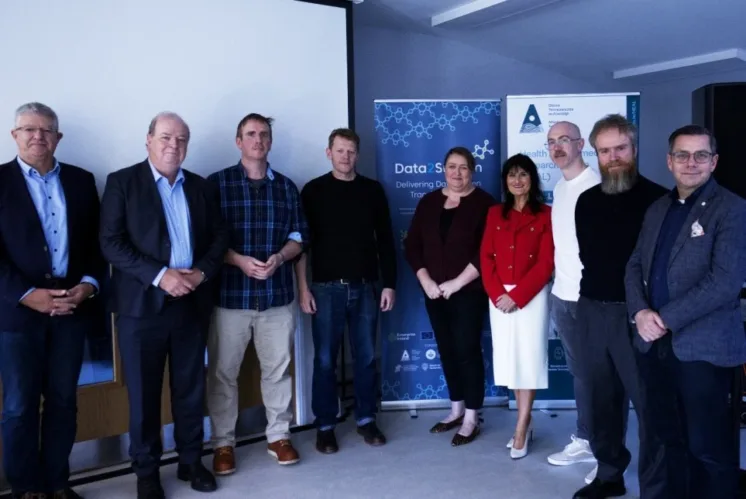
The one-day event held at the AIM Centre, Sligo, featured expert speakers from the National Office for Clinical Audit (NOCA), the Health Service Executive (HSE), the University of Galway, and ATU. The symposium showcased how applied research and digital tools are reshaping healthcare delivery: from ICU bed management during COVID to AI-driven cancer care.
Building Critical Mass and Driving Collaboration
Dr Richéal Burns, Lecturer in Health Information Technology and Director of the Health and Biomedical (HEAL) Strategic Research Centre, ATU, who organised the symposium, highlighted the collaborative outcomes:
“The strength of this symposium with the support of Data2Sustain, was in uniting clinicians, technologists, researchers, and industry voices. By sharing expertise and forging trust, we’re laying the groundwork for projects that can deliver sustainable healthcare innovation, both regionally and nationally.
Dr Michael McCann, Senior Lecturer in Research Development and Director of the JANUS Research Centre, ATU, emphasised the importance of scaling regional initiatives:
“By building critical mass in applied research through technology gateways and Data2Sustain, ATU is seeding projects that grow into major collaborations with the HSE and healthcare providers. The symposium proved the appetite and expertise are here to deliver real, scalable impact.”
Mike Conroy, Director of Data2Sustain, ATU, framed the consortium’s wider mission:
Data2Sustain is about creating an ecosystem with four centres of expertise, supporting competitiveness and innovation. By funding activities inside the consortium and connecting them with expertise outside, we help join up efforts between universities, hospitals, and companies. That cross-sector, healthcare-focused ecosystem is what will accelerate real change.
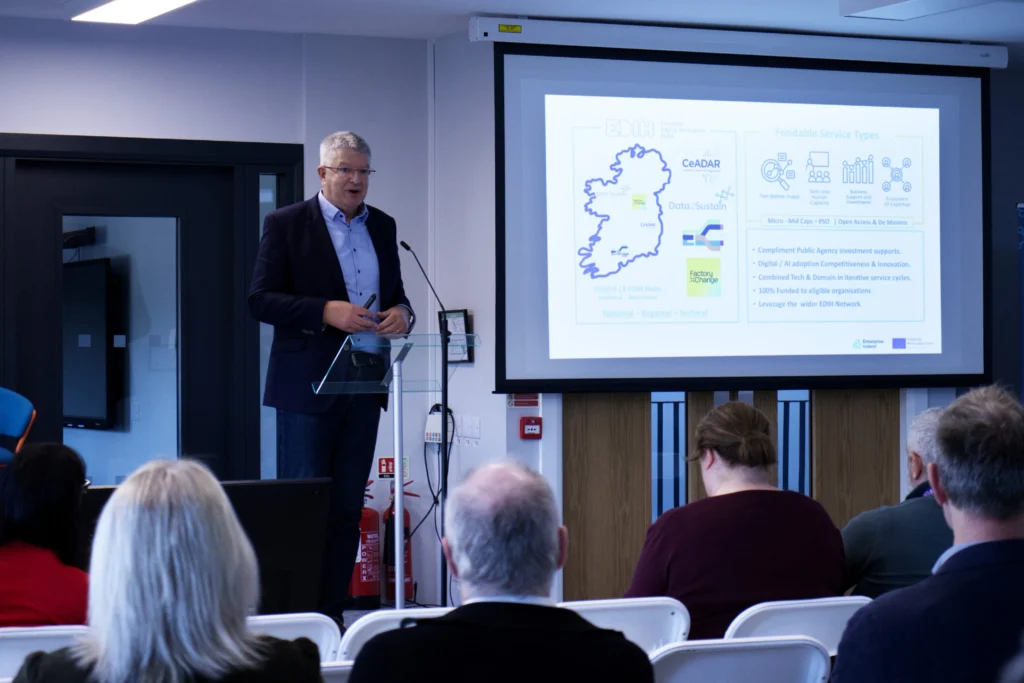
National and Regional Insights
During COVID, we rolled out an ICU data service in just 10 working days to help manage bed capacity.
Brid Moran, Audit Manager of the National Office of Clinical Audit (NOCA), demonstrated how national data collections directly improve patient outcomes: “Today, NOCA oversees 11 national data collections across palliative care, orthopaedics, and children’s health. Our role is to ensure clinicians can spend their time with patients, while efficient data systems support decision-making and benchmarking internationally.”
Dr. Chris O’Malley, Regional Development & Engagement at ATU, emphasised the importance of regional capacity and cross-border collaboration:
We are proving how data can streamline hospital flow, personalise patient treatment, and apply AR, VR, and AI in ways that directly support healthcare delivery.
“As digital technologies evolve globally, our region must position itself as a leader. Five of the seven Master’s programmes offered by NIBRT, the national Biopharma industry partnership, are provided by ATU. Through partnerships with NIBRT, Ulster University, the HEAL Research Centre, Data2Sustain, Research Education Foundation and Sligo University Hospital, we are proving how data can streamline hospital flow, personalise patient treatment, and apply AR, VR, and AI in ways that directly support healthcare delivery.”
The symposium featured several innovative presentations, including a RISE@ATU project led by Dr. William Farrelly, Lecturer and Researcher, in partnership with Luke Gavigan of Riada Care Ltd, and student, Lucas Kupczik. The project uses VR and 360° video to enrich the lived experiences of older people in residential care. Over a 12-week pilot in Hillcrest and Archview care homes in Letterkenny, residents reported improved mood, reduced isolation, and greater engagement.
“This project demonstrates how immersive experiences can revive cherished memories and bring joy to older adults who may otherwise feel disconnected,” said Dr. Farrelly. “With TU RISE funding, we’ve been able to show that immersive technologies can make a measurable difference in well-being.”
The symposium programme included presentations from:
- Dr. Chris O’Malley, Regional Development & Engagement, ATU,
- Brid Moran, Audit Manager, NOCA
- Dr. William Farrelly, Lecturer and Researcher, WiSAR Lab, ATU Donegal
- Dr. Conor Mitchell, GP Regional Lead, HSE
- Professor Michael Madden, Professor of Computer Science, University of Galway
- Dr. Martin O’Neill, Lecturer in Population Health Informatics and Statistics, ATU
- Dr. Konrad Mulrennan, Lecturer in Mechatronic Engineering and Principal Investigator, Health and Biomedical (HEAL) Research Centre, ATU
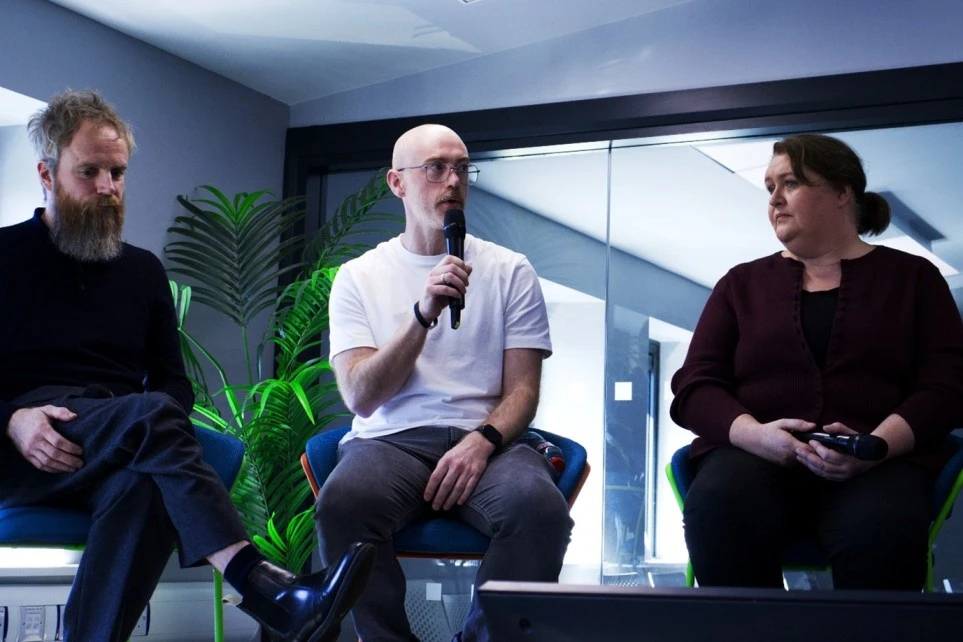
The event concluded with a roundtable on priority areas for digital health innovation, reaffirming the value of applied research and cross-sector collaboration. The symposium showcased ATU’s role in advancing healthcare research and innovation, connecting regional expertise with national initiatives, and ensuring data is translated into tangible benefits for patients and communities.
Featured Image: L-R: Mike Conroy, Dr Chris O’Malley, Dr Conor Mitchell, Dr Michael McCann, Brid Moran, Dr Edel McSharry, Dr Konrad Mulrennan, Dr Martin O’Neill, and Prof Michael Madden


